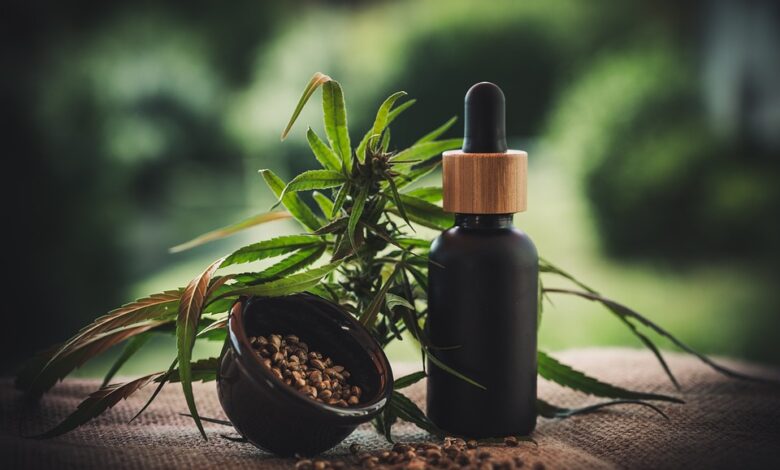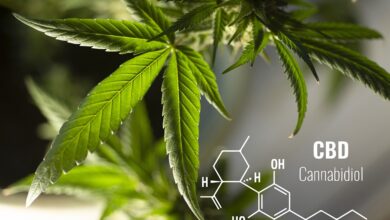Breaking Down the Medical Uses of Delta 9 THC

In this article, we will explore the medical uses of Delta 9 THC, its potential therapeutic benefits, and some frequently asked questions about its use.
What is Delta 9 THC?
Delta 9 THC is a cannabinoid, which is a group of chemical compounds found in the cannabis plant. It is the most abundant and well-known cannabinoid and is responsible for the psychoactive effects of marijuana. When consumed, Delta 9 THC binds to cannabinoid receptors in the brain and central nervous system, leading to a range of effects including euphoria, relaxation, altered perception, and appetite stimulation.
Medical Uses of Delta 9 THC
While Delta 9 THC is most commonly associated with recreational marijuana use, there is growing evidence to suggest that it may have potential therapeutic benefits for a variety of medical conditions. Some of the medical uses of Delta 9 THC that have been studied include:
Pain Management: Delta 9 THC has been found to have analgesic properties, meaning it can help to reduce pain. It does this by interacting with the body’s endocannabinoid system, which plays a role in regulating pain perception. Several studies have found that Delta 9 THC can be effective in managing chronic pain, including pain associated with conditions such as arthritis, multiple sclerosis, and cancer.
Nausea and Vomiting: Delta 9 THC has been used for decades as an antiemetic, which means it can help to reduce nausea and vomiting. It has been particularly effective in patients undergoing chemotherapy, who often experience severe nausea and vomiting as a side effect of treatment. Delta 9 THC can help to alleviate these symptoms and improve quality of life for cancer patients.
Appetite Stimulation: Delta 9 THC is also known for its ability to stimulate appetite, a property that has been utilized in the treatment of conditions such as anorexia and cachexia. It can help to increase food intake and promote weight gain in patients who have difficulty eating due to illness or medical treatment.
Neurological Disorders: There is growing interest in the potential of Delta 9 THC for treating neurological disorders such as epilepsy, Parkinson’s disease, and Tourette syndrome. Some research suggests that it may have neuroprotective and anti-inflammatory properties that could be beneficial for these and other neurodegenerative conditions.
Psychiatric Disorders: While the use of Delta 9 THC for psychiatric disorders is still controversial, some studies have suggested that it may have potential for conditions such as anxiety, depression, and post-traumatic stress disorder (PTSD). However, more research is needed to fully understand the effects of Delta 9 THC on mental health.
Frequently Asked Questions
Q: Is Delta 9 THC legal for medical use?
A: In some states and countries, Delta 9 THC is legal for medical use with a doctor’s recommendation. However, the legal status of Delta 9 THC varies widely around the world, and it is important to check the laws in your area before using it for medical purposes.
Q: What are the potential side effects of Delta 9 THC?
A: Common side effects of Delta 9 THC can include dizziness, dry mouth, increased heart rate, anxiety, and impaired memory and concentration. In high doses, it can also cause paranoia, hallucinations, and psychosis. It is important to use Delta 9 THC under the guidance of a healthcare professional to minimize the risk of adverse effects.
Q: How is Delta 9 THC administered for medical use?
A: Delta 9 THC can be administered in a variety of forms, including oral capsules, sublingual tinctures, topical creams, and inhalation via smoking or vaporization. The method of administration can affect the onset and duration of its effects.
Q: What is the difference between Delta 9 THC and CBD?
A: Delta 9 THC and CBD (cannabidiol) are both cannabinoids found in the cannabis plant, but they have different effects on the body. Delta 9 THC is psychoactive and can produce a “high,” while CBD is not psychoactive and is thought to have more subtle effects on mood, pain, and inflammation.
In conclusion, Delta 9 THC has a range of potential medical uses, from pain management and nausea relief to appetite stimulation and neurological support. While further research is needed to fully understand its therapeutic potential, there is growing evidence to suggest that it may have a place in the treatment of various medical conditions. As with any medical treatment, it is important to consult with a healthcare professional before using Delta 9 THC for medical purposes and to weigh the potential benefits against the potential risks and side effects.
[ad_2]




